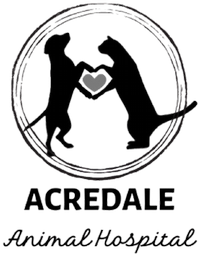Medication Monitoring Recommendations
After any drug prescription is given, your veterinarian will recommend monitoring protocols as needed for your pet.
Some of the most common protocols are listed below. Please contact us with any questions.
Anti-Convulsant Drug Monitoring
Monitoring of phenobarbital levels in the blood helps assess the need for dosage adjustments. The blood phenobarbital level should be checked 2 weeks after starting therapy and two weeks after any change in dosage. Blood should be collected 4-6 hours post-administration (peak) OR collected immediately prior to the next scheduled dose (trough).
Anticonvulsant drugs have the potential to cause liver toxicity. Patients receiving long-term phenobarbital should have a physical exam and blood work done every 6-12 months to monitor for the development of liver problems. Any abnormalities observed at home should be reported to the doctor (excessive sedation, poor appetite, vomiting, other illness).
Arthritis/ Pain Medication Monitoring
Nonsteroidal anti-inflammatory drugs (NSAIDs) such as Rimadyl, Deramaxx, and Metacam are important in the treatment of osteoarthritis. They decrease inflammation and pain. However, aging dogs often have medical conditions that affect the metabolism of these drugs. Kidney, gastrointestinal, or liver conditions should be assessed periodically with bloodwork to ensure your dog is able to metabolize and excrete the medications. If your pet is no longer able to take these medications, we will work with you to find alternatives that can improve your pet’s comfort level.
Hyperthryroidism Drug Monitoring: Methimazole
Maintaining appropriate blood levels of thyroid hormone is very important in the successful treatment of Hyperthyroidism. The effect of this medication can vary from cat to cat, and dosage adjustments may need to be made as the disease progresses. In addition, some patients can have underlying kidney disease that becomes unmasked or react adversely to methimazole. We recommend checking a CBC, T4 & Chemistry 4-6 weeks and 3 months after initially starting methimazole (or adjusting the dosage) and routine monitoring every 6-12 months to ensure your cat’s hyperthyroidism is adequately treated.
Hypothyroidism Drug Monitoring: L-thyroxin
Thyroid Supplements are used to improve hormone levels in dogs with low thyroid output (hypothyroidism). It is important to ensure that we are not over supplementing this medication and creating a hyperthyroid-like animal. It is also important that the dosage of the medication reaches therapeutic levels so that your pet’s clinical signs improve. We recommend rechecking your pet's thyroid level 1 month after starting therapy and 1 month after any dosage changes. We ask that you bring your pet in 4-6 hours after the medication has been administered for the most diagnostic timing of this test. We also offer drop-off services if this time frame does not work well with your work schedule.
Bloodwork / UA Monitoring for Apoquel:
Apoquel is a new medication that is targeted to stop itching with a minimal impact on the immune system. The most common side effects are diarrhea & vomiting. However, due to its relatively new status and potential immunosuppression -- We recommend checking a CBC and Chemistry every 6 months when using this medication long term. We will be monitoring for changes in your pet's leukocytes, globulins, lipase & liver enzymes.
It is also advised to check a urinalysis once a year to help determine if your pet may have a urinary tract infection. This is important because the symptoms of a UTI may be masked/ hidden while using Apoquel.
Recommended Monitoring for Trilostane (Vetoryl):
Trilostane, is an inhibitor of an enzyme called 3-beta-hydroxysteroid dehydrogenase. This enzyme is involved in the production of several steroids including cortisol. Inhibiting this enzyme inhibits the production of cortisol. Several studies have determined this medication to be effective in the treatment of pituitary-dependent Cushing's disease. It has also been used in dogs with alopecia X.
Dose is modified according to the results of periodic ACTH stimulation tests (at 10-14 days, 30 days, 90 days, and then every 6 months). It is important to monitor your pet closely as Addison’s disease may occur when animals are receiving Trilostane.
You should call your veterinarian if any of the following signs are observed:
- Diarrhea or vomiting
- Appetite loss (this may be as subtle as less enthusiasm towards eating when the food is served, not running for the bowl etc.)
- Lethargy or listlessness
Recommended Monitoring for Patients on Furosemide (Lasix):
Diuretics such as Lasix are important in the treatment of congestive heart failure. However, kidney values should be assessed periodically with blood work to ensure your dog is able to metabolize and excrete these medications. If problems are noted, we may recommend decreasing or changing to a different diuretic.
Cookies on this website are used to both support the function and performance of the site, and also for marketing purposes, including personalizing content and tailoring advertising to your interests. To manage marketing cookies on this website, please select the button that indicates your preferences. More information can be found in our privacy policy here.
We've upgraded our online store!
Ordering your pet's favorite food and medicine is now easier than ever.
Order Food & Meds
Quick & Easy Registration

Please use the phone number and email you currently use for hospital communications to link your account!
Linked Pet Records & Rx

Your pet's prescriptions and records will be waiting for you!
Pawsome
Savings!

AutoShip discounts, promotions on your favorite products and more!

